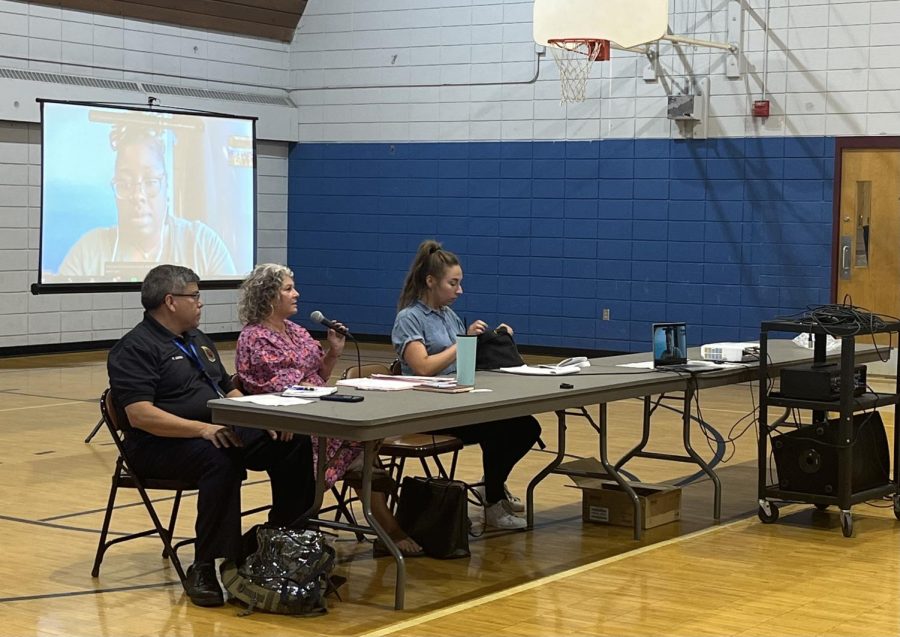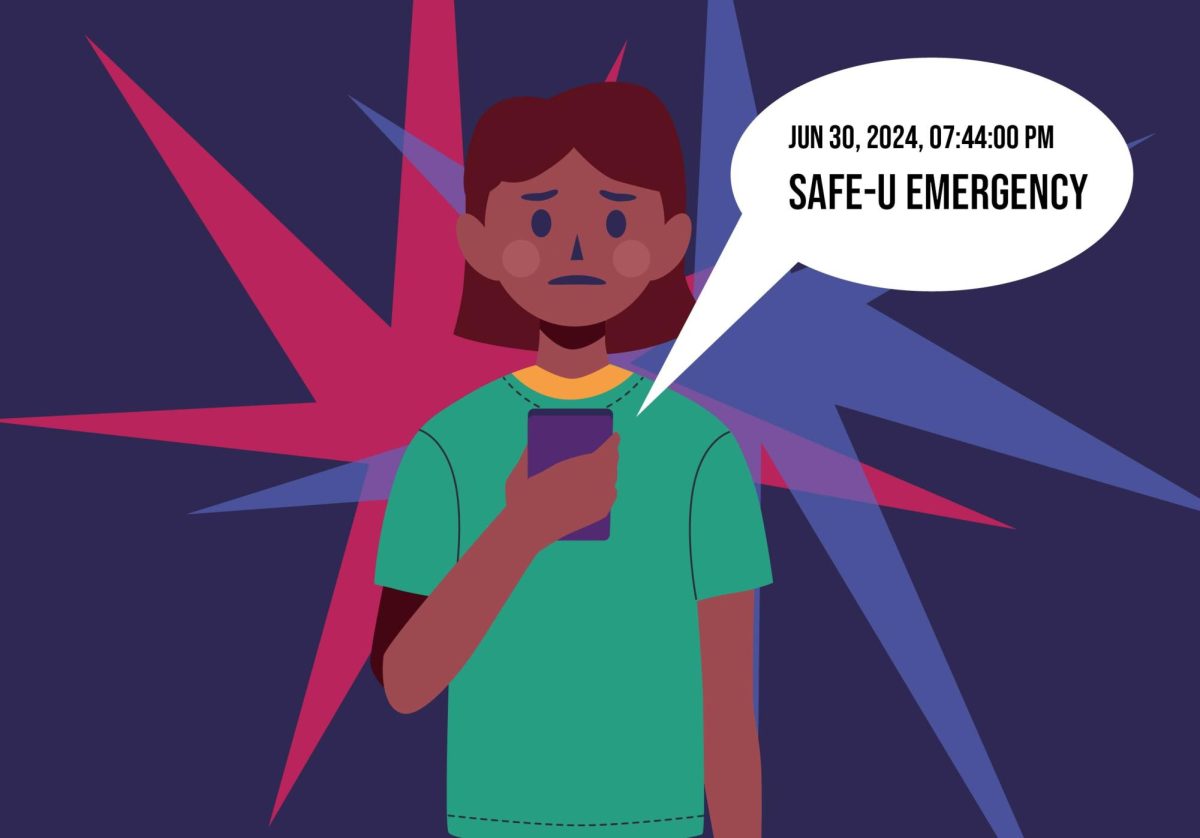Parents of University of Minnesota students banded together to pressure University and Minneapolis leaders to take action after a recent rise in violent crime on and near campus.
Last year, parents organized a Facebook group called “U of MN parents – campus safety and call to action topics” to address public safety issues. But after recent crimes in front of a property on University Avenue, a block where many students live and visit regularly, the group’s membership rose to over 1,800 people.
Videos of fights breaking out in front of the Students’ Cooperative building on 1721 University Ave. gained widespread attention on social media in May, and on June 3, a 15-year-old boy was shot in the leg near the property. Squatters were evicted from the building on June 4, according to a June 7 email to The Minnesota Daily from the affordable housing provider Students’ Cooperative Inc., who owns the property.
The building has since been secured and boarded up, and the University hired 24/7 security at the property for a 10-day period, which ended June 30.
“We are grateful to all those who have helped support and guide us through this difficult process – our hearts go out to those who have been affected by these tragic events,” the Students’ Cooperative said in an email to The Minnesota Daily.
Since the incident, city and University officials have organized meetings to hear student and parent perspectives and brainstorm potential solutions to prevent and address violent incidents in the future. Ward 2 Council Member Robin Wonsley Worlobah held a town hall meeting June 21 at Van Cleve Park, and Regent James Farnsworth held a meeting at the state Capitol on July 6.
In June, the University of Minnesota Police Department (UMPD) reported there has been a 45% increase in violent crime around the Twin Cities campus since 2019.
The University held its own public safety forum on Monday with Minneapolis Mayor Jacob Frey, Minneapolis Interim Police Chief Amelia Huffman and UMPD Chief Matt Clark in attendance to address public safety updates and field questions. University President Joan Gabel attended via Zoom.
Parents share frustrations with police shortages
At Council Member Wonsley’s meeting at Van Cleve Park, Tina Erazmus, director of the University’s Local Government and Community Relations department and Nick Juarez, the community engagement liaison with the University’s Department of Public Safety attended as panelists.
During the meeting, Erazmus stressed that the Students’ Cooperative property was privately owned, so the University would be unable to control what happened to the building.
“I believe it is the hope of the University to own that property and find more renters to live there,” Erazmus said. “[Until then], there is no way that they can guarantee that this is a situation that wouldn’t happen again.”
About 20 people attended the meeting in person and about 80 virtually via Zoom. Parents of University students represented the majority of those present and took the opportunity to make their voices heard. Attendees had the opportunity to submit written questions for the panelists and Council Member Wonsley to answer, but some parents also opted to speak in front of the group.
Parents said they were frustrated that University and Minneapolis officials had cited jurisdiction issues as an explanation for lack of action.
“What I heard here today is that a lot of people say they don’t have jurisdiction for things,” Mike Olsen, parent of a University student, said. “The solutions are very simple. People need to start working together to actually address violent crime…Everybody in the community is a potential victim here.”
Juarez said during the meeting the University recently hired four police officers, but soon after, three of those four quit. He said one officer reported taking a pay cut to move to the University of Wisconsin-Madison because “the atmosphere and support is better over there.”
“It’s dehumanizing; it’s demoralizing when you don’t feel like you have the support of the community you’re policing,” Juarez said. “We should be one University.”
Some parents echoed Juarez’s sentiments about supporting University police.
“What has transpired over the last year was disgusting, honestly,” parent Erin Bruns said after the meeting. “The leadership at the University of Minnesota does not support the police department. And until there’s that support, they can’t fill those vacancies, so who’s gonna do it?”
On June 20, Senior Vice President for Finance and Operations Myron Frans sent an email to University students and staff outlining steps the University is taking to beef up public safety, which included: continuing to invest in overtime for University police officers, using mobile lighting and camera trailers, evaluating adding additional security personnel on campus and launching a safety awareness campaign in the fall.
“UMPD has the full support of the University’s leadership,” Frans said in a statement to The Minnesota Daily. “Our directive from President Gabel and our Board of Regents is to continue investing more in public safety than we ever have, both financially and by visibly and vocally supporting the critical safety work taking place on and near our campus every day.”
Council Member Wonsley said she wanted to continue to organize forums to discuss ideas for change.
“The biggest thing that I walked away with from that meeting is that parents want to see leadership at the University of Minnesota as well as the City of Minneapolis,” Wonsley said. “We’ll come back with some of the ways in which we think we can be proactive around some of the things that were raised.”
Because not all written questions were answered at the meeting, Wonsley sent answers in a follow-up email on Saturday. In response to being asked what will be done to address the increase of violent crime this summer, she responded that she is committed to expanding innovative public safety measures, such as the Behavioral Health Crisis Response team, which Wonsley said has been shown to effectively prevent crime.
Wonsley also wrote that she attended hiring and training events for Minneapolis police officers and found recruiting and retaining “quality” officers is “extremely difficult” right now because of MPD’s reputation “as a Department where employees face discrimination from their colleagues, where training and policy enforcement are inconsistent,and where even officers with the best of intentions might be put in riskier situations more frequently than in other local PDs, which function more consistently.”
“I think it is clear to everyone that our current public safety system isn’t working for anyone,” Wonsley wrote. “It isn’t working for residents who are apprehensive about being victims of crime. It isn’t working for residents who are apprehensive about being victims of police brutality and misconduct. It isn’t working for officers who are leaving the force at extremely high rates due to PTSD.”
Listening session provides space for collaboration
Despite reassurance that the Board of Regents and President Gabel are taking their outrage seriously, parents said they have felt their campaign for change has not been heard and addressed. An exception, parents said, is Regent Farnsworth, who organized a listening session at the state Capitol on Monday. The session drew a similar crowd to the meeting at Van Cleve Park, with about 100 people attending in person and online.
Attendees were invited to speak in front of the group and shared their opinions about how to make campus safer, stories of dangers their children had experienced near the University and frustrations about the University’s response to their concerns.
Jennifer French spoke over Zoom and said her oldest son’s friend was shot on campus, which inspired her to form the parent’s public safety Facebook group in 2021.
“I wish I knew what to do because otherwise I would do it, but we just absolutely need to know what is going on,” French said during the meeting. “One of the biggest complaints on this website is that no one tells us what’s going on. And I feel like they have a right to do that. To hear us.”
Parent Brian Peck presented his own compilation of violent crime data in the University neighborhood, taken from the City of Minneapolis’ database. He created a bar graph showing violent crime by month from January 2019 to May 2022, with the trend line indicating that crime has continued to rise over time.
“My proposal has been all along that we need a scorecard. We need to try something new, and then let’s see if these trends change. If they don’t, then we have to try something else,” Peck said. “We can’t wait because every second we wait, that’s more violent crimes that happen and that’s more increased anxiety for the students or anybody that walks around there.”
Most people who spoke up were parents of students at the University, but Morgan McElroy, who graduated from the University in 2021, presented his own message as an alumnus who was involved in campus safety as a leader in his fraternity and a member of student government.
McElroy said that while he was a student, he wrote a letter to regents, the president, city council members and state representatives, among others, pushing for 12 measures he believed could help make campus safer. He eventually received responses acknowledging his concerns but said University leaders failed to work with him to bring any of his requests to fruition.
Measures he advocated for include communicating with MPD over “hurt feelings” shared in Gabel’s decision to cut ties with them in May 2020 so they would patrol off-campus neighborhoods again, coordinating with Dinkytown businesses and apartment complexes to place external cameras to watch the streets and improving SafeU crime alerts to include more detailed physical descriptions and providing follow-up messages when cases are closed.
He said he has continued to fight for change post graduation and is now supporting the efforts of parents in the Facebook group.
Member of the University student group Students for a Democratic Society Cal Mergendahl said they think there is reason to be concerned about violent crime on campus, but parents who have been speaking out don’t always have a direct understanding of life on campus and the “reality of the situation.”
“Campus is a pretty safe place to be…maybe the safest place to be in the City of Minneapolis,” Mergendahl said.
Mergendahl said University leaders have been concerned with appearing as if they are working to address crime in neighborhoods near campus, such as Dinkytown, but in reality, they lack jurisdiction outside of campus. Mergendahl said the University is losing UMPD officers because of culture issues within the force, not because of lack of administrative or student support.
Frans said the University funded the UMPD’s entire budget request for the upcoming year, according to an email to The Minnesota Daily.
“If UMPD wants to really address this culture issue, it needs to be holding itself accountable,” Mergendahl said. “Until then, the administration is throwing money at the problem and it’s not doing anything.”
McElroy said it’s important to form a committee that includes underrepresented voices to share public safety concerns.
“I think there’s a lot we can do; it doesn’t necessarily have to just be armed police,” McElroy said. “This shouldn’t be political, and the fact that it is, is why we’re not seeing a whole lot of traction. We really just need to get people to sit down and figure out what that common thread is because I know it exists.”



























